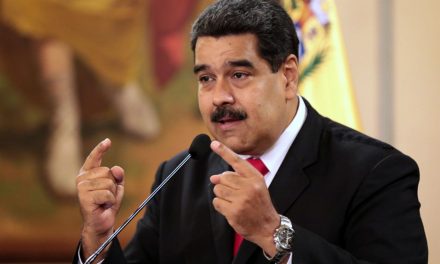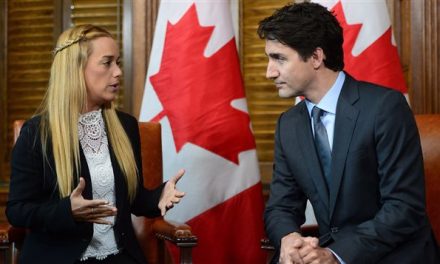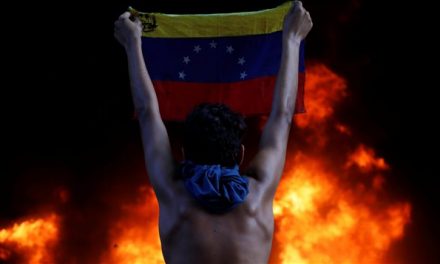Venezuela: a Threat to US Energy Hegemony?
Common Frontiers
Since the election of Hugo Chavez in 1999, Venezuela has achieved impressive gains in health care, education, and reduction in poverty, while at the same time wrestled economic and political control from the country’s elite. Today, soaring inflation, a shrinking economy and a hyper-politicized environment are contributing to unprecedented challenges economically and politically – threatening to undo some of the achievements of the past. These challenges can be attributed to many factors, some structural, such as an oil-dependent economy, and a complex monetary arrangement which has given rise to “bachaqueros” who resell price-controlled items at hugely inflated prices on the black market. Other challenges are more politically driven – they stem from the existence of a hardline sector of the opposition aligned with U.S. interests who oppose the Socialist government’s policies of resource nationalism and wealth redistribution.
The international media with its biased coverage of the conflict in Venezuela has failed to adequately report on violent actions against government supporters by extremist sectors of the opposition. It has however, diligently perpetuated the opposition narrative that the crisis in Venezuela is the sole responsibility of the Maduro government, a dictatorship on the brink of collapse resorting to violence against peaceful protesters in a desperate bid to hold on to power. These allegations have little merit, and are similar to accusations made against former president Hugo Chávez. The hardline opposition has never accepted the electoral legitimacy of the Bolivarian governments, and its violent demonstrations have had the full support and backing of the U.S. government. In 2014 alone, U.S government documents show that Obama’s administration channelled $5M dollars to opposition groups to help “strengthen” and “protect” democracy in Venezuela. The Trump administration, in turn, has provided unprecedented political support to jailed opposition leader, Leopoldo López , who has been found guilty of public incitement to violence and association to commit a crime. There has been close coordination between opposition-led National Assembly leaders and White House national security advisor H.R. McMaster on how to address the political impasse in Venezuela.
The international media also puts the blame for the economic crisis facing Venezuela firmly on the government’s shoulders. They fail to mention the role of business producers of goods who regularly hoard basic items to create shortages and public discontent. Some believe the economic war contributed to the PSUV’s defeat during the 2015 parliamentary elections – due to the lack of black beans. Black beans are a staple of the Venezuelan diet and for some time before election day these had disappeared completely but the day after voting they were back on supermarket shelves.
Similar to the crisis that precipitated the short-lived 2002 coup against Chávez, leaders of the hardline opposition have made it clear that their goal is “regime change”. Henry Ramos Allup of the opposition Democratic Action party and former National Assembly president declared on the first day he assumed that position that they would remove Maduro from power within six months. The opposition referred to their march in October 2016 as the “Taking of Venezuela” (La Toma de Venezuela), an inflammatory title. During that march Jose Alejandro Molina Ramirez, a policeman, was killed by opposition gunfire and two others injured; which contradicts the opposition message that their marches are “peaceful”.
–read the complete article on venezuelaanalysis.com
Raul Burbano is the program director of Common Frontiers.
This item original appeared in the May 18, 2017 edition of VenezuelaAnalysis.com






